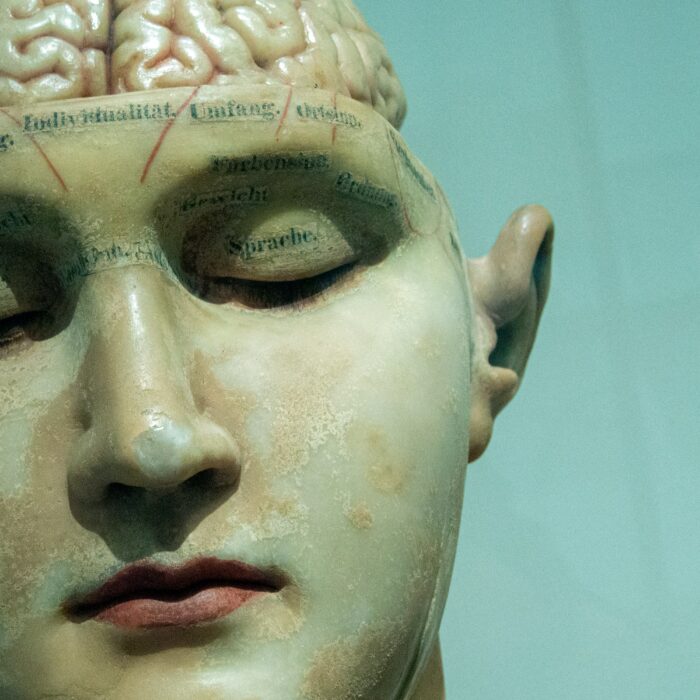You have no items in your cart. Want to get some nice things?
Go shopping  Nollaig Sheehy sat two seats from the front with her coat fastened. Her hands were folded on her knees and the priest’s late start didn’t concern her. He was probably called out to an ailing parishioner. A few children were restless. She heard the whimpers and the hushing noises of mothers, but mostly the congregation waited with nothing more than the occasional whisper and shuffle. Nollaig was thinking of the roast beef she would cook for herself and Margaret when the priest appeared red-cheeked and breathless in his white linen vestment.
Nollaig Sheehy sat two seats from the front with her coat fastened. Her hands were folded on her knees and the priest’s late start didn’t concern her. He was probably called out to an ailing parishioner. A few children were restless. She heard the whimpers and the hushing noises of mothers, but mostly the congregation waited with nothing more than the occasional whisper and shuffle. Nollaig was thinking of the roast beef she would cook for herself and Margaret when the priest appeared red-cheeked and breathless in his white linen vestment.
Father Kineally, a tall, skinny priest, with a thick head of silver hair and big nose, grasped the side of the pulpit and leaned forward to tell the congregation that a terrible thing had happened.
“Nick Moody was grievously hurt,” the priest said. “He was bludgeoned and found behind the Dun Maeve pub.”
Nollaig thought he was looking directly at her. She was convinced she’d misheard him and it wasn’t Nick Moody name he’d spoken, but her daughters, Margaret Sheehy, who had been working in the Dun Maeve last night.
Fr Kineally was speaking about the community helping each other in this time of need and Nollaig was thinking of her daughter standing by the back door of the pub. No matter the weather she liked to go there so she could hear the rush of the river beside her.
“The first thing I do when everyone leaves,” she’d said before, “is go out and breathe that fresh air.”
Nollaig realized she was standing. Her head was light. She could feel the attention on her and the worry that had risen from her movement. Many present must have realized that Margaret had been working last night. There was a collective intake of breath. Neighbor’s knees tilted sideways. Nollaig stumbled onto the aisle.
The priest’s voice followed her out of the church. Last night’s rain had brought out the dark hues of the countryside. The road was quiet. Nollaig weaved through the cars parked in front of the church. Somewhere close a dog was barking and she imagined Margaret hurt or still hiding in the pub. Her breathing felt trapped inside her head. She ran, then walked, then ran again.
It took three efforts to get her key in the latch. Nollaig didn’t bother taking it out. In her hurry, she left the front door open. Her daughter’s room was at the front of the bungalow. Nollaig opened the door to darkness and a scent of unwashed clothes. Her daughter’s form was huddled under the covers in bed.
“Hey!” Margaret said when Nollaig turned on the light to reveal her daughter’s dark hair and pale skin.
“Turn the light off,” Margaret said. Nollaig couldn’t move. Her daughter was rising from the bed and Nollaig was looking at the wet clothes that had been thrown on the floor.
“Mammy what is it?” Margaret said.
For a moment Nollaig couldn’t speak.
“Mammy,” Margaret urged and the worry in her voice pulled Nollaig back.
She told her, “Nick Moody was hurt last night”.
“What do you mean hurt, what happened?” Margaret said.
Nollaig was shaking her head. She said she didn’t know. She ran home as soon as she heard because she was so worried. “You get up, I’ll put on the kettle,” she said.
Nollaig was standing in her kitchen when she saw the police car.
*
Across from Margaret was a female guard with short blonde hair and thoughtful navy eyes. She was slim with wrists that looked small enough to break with touch. She had introduced herself as Hennessy. Her partner sat beside her. Mc Mahon was his name. He had broad shoulders and pale green eyes over a small nose and thin mouth. There was some grey in his hair, though his face was young. They both wore navy garda uniforms.
In her pajamas, Margaret looked like a large child beside them.
“I didn’t go out the back. I was going to,” Margaret said, “But the rain sounded awful.” She paused and shook her head. “I left the bin bag by the back door.”
Nollaig felt numb as if she was watching this scene from afar. It was too much to think of her daughter standing at that back door, her hand on the handle, the absurdity of it all. McMahon asked if Nick Moody left with anyone.
“No,” Margaret said, “He left alone just after 1 am.”
The last customer was gone twenty minutes later. Margaret finished cleaning and went out the front. Nick’s car was parked across the road, but it was too dark to see if he was inside and too far for her to investigate. She had gotten soaked running to her mother’s car. She’d driven because the forecast warned of rain and she didn’t like walking alone at that hour anyway, no matter how short the journey. She saw no one on her way home.
“Did anything unusual happen last night, any arguments?” Hennessy asked.
Nollaig had to fight the urge to run to her daughter and tell her not to say anything more. The seconds of silence pulled at her and made the swish of the washing machine sound oppressive.
Margaret had a habit of biting her lip when concentrating. As a child, she used to chew her hair. After a while, she said, “No, nothing happened.”
A glance out the kitchen window showed the day had turned darker. Clouds skimmed the sky. Nollaig wanted to be on the other side of the glass, far away from here. The room was stuffy and hot. Hennessy asked who Nick was with last night.
Margaret said, “His wife Joan, but she didn’t stay long.”
She said couldn’t imagine how she was now. A silence reigned after this and Nollaig wondered if her daughter was waiting for news if she expected the police to lean forward and tell her something of the wife, how she greeted them at the door with a tired face and collapsed when she heard of her husband’s murder.
Hennessy had glanced at her partner with the mention of the wife’s name. Nollaig was sure they had been the bearers of bad news; the two had stood at Bernadette’s door. Maybe Hennessy had held her.
Hennessy said, “Who else was there?”
Margaret rolled a list of names including their next-door neighbor Raymond.
McMahon scribbled the names down. Nollaig wondered what the guards would learn about Margaret. They would probably talk to Raymond since he was in the pub. She could imagine them at his kitchen table, huddled as they were now. It was possible Raymond would remember spending time with Margaret when they were children. Margaret was never happy in his company. There were one or two instances where Nollaig found Raymond crying.
What would the two detectives think when they learnt that Margaret had no friends and a sketchy employment record?
For three months she’d worked in a clothes shop in Sligo town. The manager, a fortyish, well-kept woman with blonde hair and judicious eye had agreed to take Margaret on part time. Within the first week, Margaret came home telling Nollaig that she had dressed the window and had been asked to order the clothes for next week. Nollaig sat at the kitchen table, listening with a sinking sensation in her gut. Days before Margaret stopped going to work, their dinners were eaten quietly without Margaret grabbing her arm and saying. “Wait till I tell you?”
Nollaig had been foolish enough to feel relieved with the end of the lies. She should have known her daughter had had her fun and was getting bored. It had happened with the courses in hairdressing and computers she’d started with a flourish, then let fizzle out. Still, it had been a shock when wrapped in her duvet and with her pillow over her head; Margaret had announced she wasn’t going into the shop. By the time the owner of the pub asked if Margaret wanted to work a few shifts, she had been unemployed six months.
Nollaig couldn’t concentrate on the questions being asked now. The voices rose and fell and she wondered if the detectives were aware of the washing machine. There were only a handful of clothes being washed that Nollaig had lifted from her daughter floor. Nollaig couldn’t remember if she’d poured detergent in before turning the machine on. The police had gotten out of the car by then and were walking towards the house. Margaret had stalled in the hall when she saw them. She’d looked frightened.
“It’ll be okay,” Nollaig had told her.
A scrape of the chair brought Nollaig’s attention back to the table. McMahon and Hennessy were standing.
“Let us know if you think of anything else?” Hennessy said and Nollaig noticed the white card that had been placed on the table as she walked them out.
“It’s a shock,” McMahon said to Nollaig, and she realized how pale she must look, how shaken and disheveled. She had lost the power of speech. “I know,” she wanted to say, but there was nothing in her mouth.
From the door she watched them drive away. When she went back to the kitchen, her daughter turned to look at her.
Margaret’s eyes were red but focused. “Isn’t it terrible Mammy?” she said.
Nollaig couldn’t answer. Her tongue felt too heavy in her mouth. She didn’t know how she was standing.

About L.M Brown
L.M Brown grew up in Ireland, but resides in Massachusetts with her husband and three daughters. Her short stories have appeared in numerous magazines and have been nominated for the Pushcart Prize. Her novel 'Debris' set in Ireland in the eighties has just been released. 'The Village', her linked short story collection set in her home town is forthcoming with Fomite Press.




